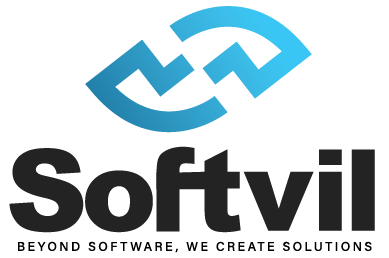Business scalability, a crucial goal for organizations seeking to grow and adapt in today’s dynamic business landscape, relies on the ability to expand or contract swiftly in response to market shifts and customer demands. An instrumental strategy in achieving this agility is software outsourcing. This article delves into the pivotal role that software outsourcing plays in enabling businesses to scale efficiently and effectively.
Software outsourcing allows companies to harness external expertise and resources, helping them reduce costs, streamline operations, and enhance their competitiveness. In this article, we’ll explore five key dimensions of scalability through outsourcing, which include cost savings and efficiency, focus on core competencies, access to specialized expertise, rapid scalability, and risk mitigation.
By the end of this article, you’ll gain a comprehensive understanding of how software outsourcing can empower businesses to grow, thrive, and navigate the challenges of an ever-evolving market. Let’s embark on this journey to uncover the untapped potential of outsourcing in business scalability.
Cost Savings and Efficiency

Cost savings and operational efficiency are pivotal factors in achieving business scalability through software outsourcing.
Streamlining Operational Costs
Software outsourcing allows businesses to significantly reduce their operational expenses. By delegating non-core tasks to specialized external partners, companies can avoid the overhead costs associated with hiring, training, and maintaining in-house teams. This is especially evident in areas like customer support, IT maintenance, and software development. For instance, companies can access a global talent pool and benefit from lower labor costs in offshore locations, which can result in substantial cost savings.
Enhancing Scalability
The cost savings achieved through software outsourcing can be reinvested in core business activities, product development, or marketing. This financial flexibility equips companies with the resources needed to scale their operations up or down rapidly. Whether a business aims to expand into new markets, launch new products, or respond to fluctuations in demand, cost savings derived from outsourcing can be a powerful enabler of scalability.
Focusing on Core Competencies

Strategic businesses recognize the significance of concentrating on core activities and leveraging software outsourcing to delegate non-core functions.
Embracing Core Competencies
Focusing on core competencies involves centering a company’s resources, talent, and efforts on the aspects that set it apart and drive its competitive advantage. Core competencies are the unique strengths and capabilities that distinguish a business within its industry. By concentrating on these, a company can excel in its chosen field.
Benefits of Outsourcing Non-Core Functions
Outsourcing non-core functions is a strategic approach to achieve a more streamlined and effective business model. Companies can offload tasks such as customer support, data entry, and routine IT maintenance to specialized outsourcing partners. This allows in-house teams to direct their energy and expertise toward core business activities like product development, marketing, or strategic planning.
Several prominent companies have embraced the concept of outsourcing non-core functions to focus on their core competencies. For instance, a leading e-commerce giant outsources its customer service operations to dedicated call centers, enabling its in-house teams to enhance its platform and user experience. Similarly, many software companies outsource software development and maintenance tasks to external partners, which allows them to dedicate more time and resources to innovation and product improvement.
In conclusion, prioritizing core competencies through software outsourcing is a strategic approach that enhances a company’s ability to excel in its core area of expertise, innovate, and ultimately achieve business scalability. The delegation of non-core tasks to specialized outsourcing partners can lead to improved performance and a more competitive edge.
Leveraging Specialized Skills and Expertise

Accessing specialized skills and expertise via software outsourcing brings several advantages and drives innovation and growth for businesses.
Advantages of Accessing Specialized Expertise
Outsourcing offers a gateway to a wealth of specialized skills and expertise. External partners, often experts in their respective fields, bring unique strengths and knowledge that may not be readily available within the organization. This access to specialized skills provides several advantages:
- Efficiency: Outsourcing specialized tasks to experts accelerates project completion, reduces errors, and ensures high-quality results.
- Cost-Effective: Hiring in-house specialists can be costly. Outsourcing allows businesses to tap into specialized skills without the burden of full-time employment.
- Scalability: Businesses can readily adapt and scale their operations to align with market demands by leveraging external experts.
Driving Innovation and Growth
Access to specialized expertise fuels innovation and propels business growth in the following ways:
- Fresh Perspective: External specialists bring new ideas and fresh perspectives, encouraging innovation within the organization.
- Market Insights: Specialized knowledge allows businesses to stay ahead in a rapidly changing market by keeping up with the latest industry trends.
- Competitive Edge: Leveraging external expertise can result in superior products and services, positioning the business as a leader in the industry.
- Resource Optimization: Outsourcing specialized tasks frees up internal resources to focus on core activities and strategic initiatives, further fostering growth.
Rapid Scalability

Software outsourcing empowers businesses with the agility to rapidly scale their operations, both up and down, offering distinct advantages by sidestepping time-consuming hiring and training processes.
Flexibility and Speed in Scaling
Software outsourcing equips businesses with the flexibility to respond swiftly to changing market dynamics. In times of increased demand or market expansion, companies can quickly scale up their operations by engaging external partners. This allows for the efficient allocation of resources, such as human capital and infrastructure, to meet surging customer needs. For example, a software development company can seamlessly extend its development team by outsourcing specific projects to accommodate client requirements.
Advantages of Avoiding Lengthy Hiring and Training
Traditional hiring and training processes are often lengthy and resource-intensive. When businesses opt for software outsourcing, they bypass these arduous procedures, reaping several advantages:
- Time-Efficiency: Outsourcing partners come with existing expertise, eliminating the need for lengthy recruitment and onboarding processes. Projects can commence almost immediately, reducing time-to-market for products or services.
- Cost-Efficiency: Hiring, training, and maintaining an in-house workforce can be expensive. Outsourcing offers cost savings by allowing businesses to access specialized skills without the overhead costs associated with full-time employees.
- Reduced Administrative Burden: Managing an internal workforce necessitates ongoing administrative tasks, which can be a distraction from core business functions. Outsourcing minimizes this administrative burden.
Risk Mitigation

Software outsourcing serves as a strategic risk management tool for businesses when scaling up, helping mitigate uncertainties and market fluctuations by sharing responsibility and offering practical insights.
Mitigating Risks in Market Fluctuations
When a business scales up, it often faces market uncertainties, economic fluctuations, and changing customer demands. Software outsourcing offers a proactive approach to risk mitigation by:
- Access to Diverse Markets: Outsourcing partners may have a global presence, helping businesses expand into new markets and diversify their customer base.
- Flexibility: Outsourcing allows businesses to adjust resources as needed, enabling them to react swiftly to market changes without bearing the full burden of these risks.
- Cost Predictability: Outsourcing contracts often come with predictable costs, allowing businesses to manage financial risks more effectively.
Shared Responsibility in Risk Management
One of the strengths of outsourcing lies in shared responsibility. The outsourcing partner assumes certain responsibilities, reducing the risks for the hiring company. For instance:
- Data Security: An outsourcing partner may be responsible for implementing robust data security measures, reducing the risk of data breaches.
- Compliance: Compliance with legal and industry regulations can be a shared responsibility, with the outsourcing partner contributing to compliance efforts.
- Risk Allocation: Outsourcing contracts often include risk allocation clauses, making it clear how risks are shared between the parties.
Practical Insights for Risk Management
To leverage software outsourcing effectively for risk management when scaling up, businesses can take practical steps such as:
- Contractual Clarity: Ensure that outsourcing agreements are clear and comprehensive, defining roles, responsibilities, and risk-sharing mechanisms.
- Regular Communication: Maintain open and transparent communication with the outsourcing partner to address potential risks promptly.
- Continuous Evaluation: Periodically evaluate the outsourcing relationship to identify and mitigate risks, adjusting strategies as needed.
Conclusion
In conclusion, this article has highlighted the pivotal role of strategic software outsourcing in driving business scalability. By leveraging outsourcing, businesses can achieve cost savings, focus on core competencies, access specialized expertise, rapidly scale operations, and effectively mitigate risks. The advantages of outsourcing in these areas are clear, with numerous real-world examples demonstrating its transformative impact.
Strategic outsourcing not only optimizes operational efficiency but also fuels innovation and growth. It empowers companies to respond swiftly to changing market dynamics, ensuring flexibility and competitiveness in a dynamic business environment.
Therefore, businesses are encouraged to consider outsourcing as a growth engine and a scalability strategy that can propel them to new heights. By harnessing the power of outsourcing, companies can streamline their operations, enhance their capabilities, and navigate the challenges of an ever-evolving market with agility and confidence, ultimately securing their path to sustained growth and success.

